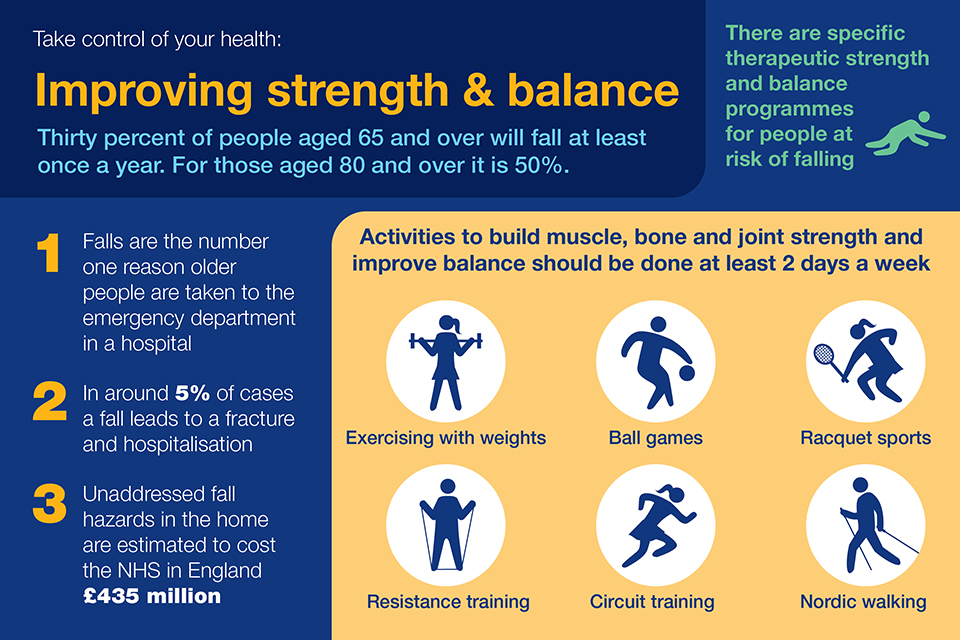Dementia Fall Risk Fundamentals Explained
Dementia Fall Risk Fundamentals Explained
Blog Article
See This Report about Dementia Fall Risk
Table of ContentsAn Unbiased View of Dementia Fall RiskSome Known Details About Dementia Fall Risk Dementia Fall Risk Things To Know Before You BuyThe Basic Principles Of Dementia Fall Risk The Greatest Guide To Dementia Fall Risk
Make certain that there is an assigned location in your clinical charting system where team can document/reference scores and record relevant notes related to drop prevention. The Johns Hopkins Fall Danger Assessment Tool is one of lots of tools your staff can utilize to assist protect against adverse medical events.Individual falls in healthcare facilities prevail and incapacitating negative occasions that persist in spite of years of initiative to lessen them. Improving interaction across the analyzing registered nurse, treatment group, patient, and person's most included family and friends may strengthen autumn avoidance initiatives. A team at Brigham and Women's Hospital in Boston, Massachusetts, sought to establish a standard autumn avoidance program that centered around enhanced interaction and individual and family involvement.

The innovation team stressed that successful application depends upon individual and personnel buy-in, integration of the program right into existing workflows, and fidelity to program procedures. The team kept in mind that they are facing how to make certain connection in program implementation during durations of situation. Throughout the COVID-19 pandemic, as an example, a rise in inpatient drops was associated with restrictions in patient engagement together with constraints on visitation.
Dementia Fall Risk Fundamentals Explained
These cases are normally considered preventable. To carry out the treatment, companies need the following: Accessibility to Loss TIPS sources Fall ideas training and re-training for nursing and non-nursing personnel, consisting of brand-new nurses Nursing workflows that allow for individual and household interaction to conduct the falls analysis, guarantee usage of the avoidance plan, and perform patient-level audits.
The results can be highly harmful, usually speeding up client decline and creating longer hospital stays. One study estimated stays boosted an extra 12 in-patient days after an individual fall. The Autumn TIPS Program is based on interesting individuals and their family/loved ones across three primary procedures: assessment, personalized preventative treatments, and bookkeeping to guarantee that people are taken part in the three-step fall prevention procedure.
The person analysis is based upon the Morse Loss Range, which is a confirmed fall threat analysis tool for in-patient hospital setups. The scale includes the six most typical reasons people in medical facilities fall: the person fall history, high-risk conditions visit our website (consisting of polypharmacy), use IVs and various other outside devices, mental standing, stride, and wheelchair.
Each threat factor web links with one or even more actionable evidence-based interventions. The nurse creates a strategy that integrates the interventions and shows up to the treatment group, client, and household on a laminated poster or printed aesthetic aid. Registered nurses establish the strategy while meeting with the individual and the patient's family members.
The 2-Minute Rule for Dementia Fall Risk
The poster acts as an interaction tool with other members of the client's care team. Dementia Fall Risk. The audit component of the program includes assessing the patient's knowledge of their risk factors and prevention strategy at the device and medical facility levels. Nurse champs perform a minimum of 5 private interviews a month with patients and their family members to examine for understanding of the autumn prevention plan

An estimated 30% of these falls outcome in injuries, which can range in extent. Unlike other damaging occasions that require a standardized scientific reaction, fall avoidance depends very on the demands of the person.
Some Ideas on Dementia Fall Risk You Should Know

Based upon bookkeeping results, one site had 86% conformity and two websites had over 95% conformity. A cost-benefit analysis of the Fall TIPS program in eight hospitals approximated that the program cost $0.88 per individual to carry out and led to cost savings of $8,500 per 1000 patient-days in straight prices associated with the avoidance of 567 tips over three years and eight months.
According to the innovation group, companies curious about applying the program ought to perform a readiness assessment and falls avoidance voids evaluation. 8 In addition, organizations need to ensure the needed infrastructure and workflows for execution and develop an execution strategy. If one exists, the company's Loss Avoidance Task Pressure ought to be involved in preparation.
9 Simple Techniques For Dementia Fall Risk
To start, companies ought to make sure completion of training modules by nurses and nursing assistants - Dementia Fall Risk. Health center staff need to evaluate, based upon the demands of a medical facility, whether to utilize an electronic wellness document printout or paper variation of the fall prevention plan. Applying teams need to recruit and educate nurse champs address and develop procedures for auditing and coverage on autumn information
Staff require to be associated with the process of revamping the operations to engage clients and family members in the analysis and prevention plan procedure. Systems needs to be in location so that units can understand why a fall occurred and remediate the cause. More especially, registered nurses ought to have networks to provide continuous responses to both team and device management so they can adjust and enhance fall prevention workflows and interact systemic problems.
Report this page